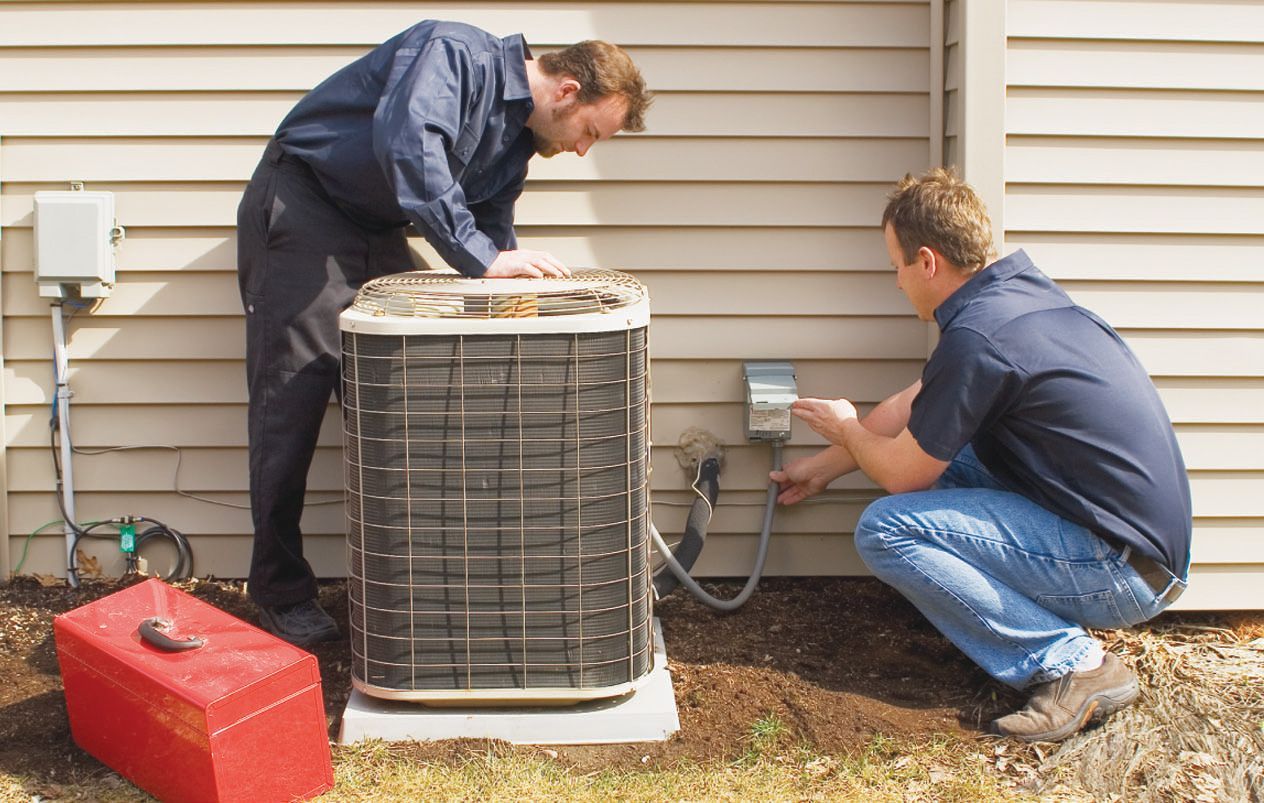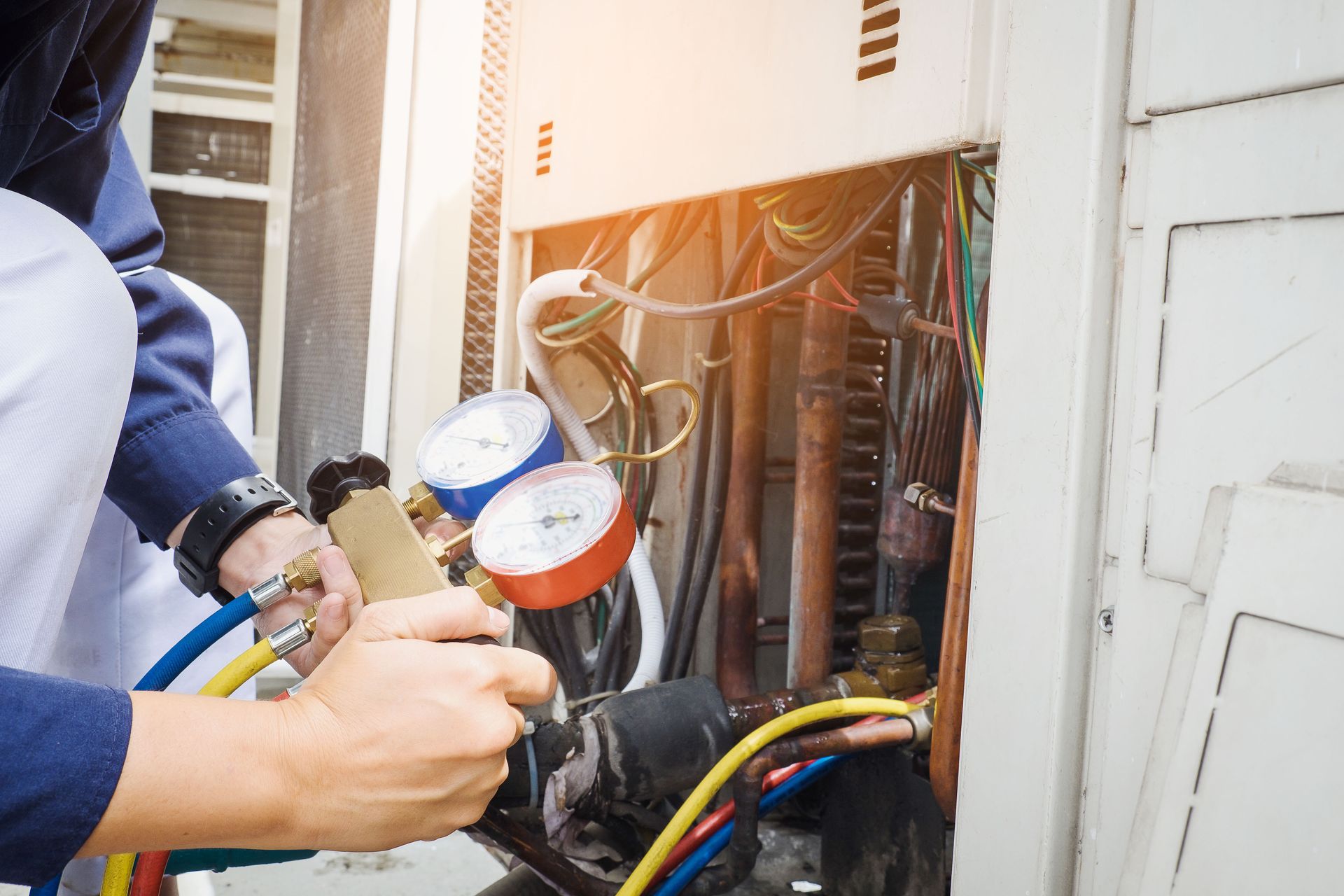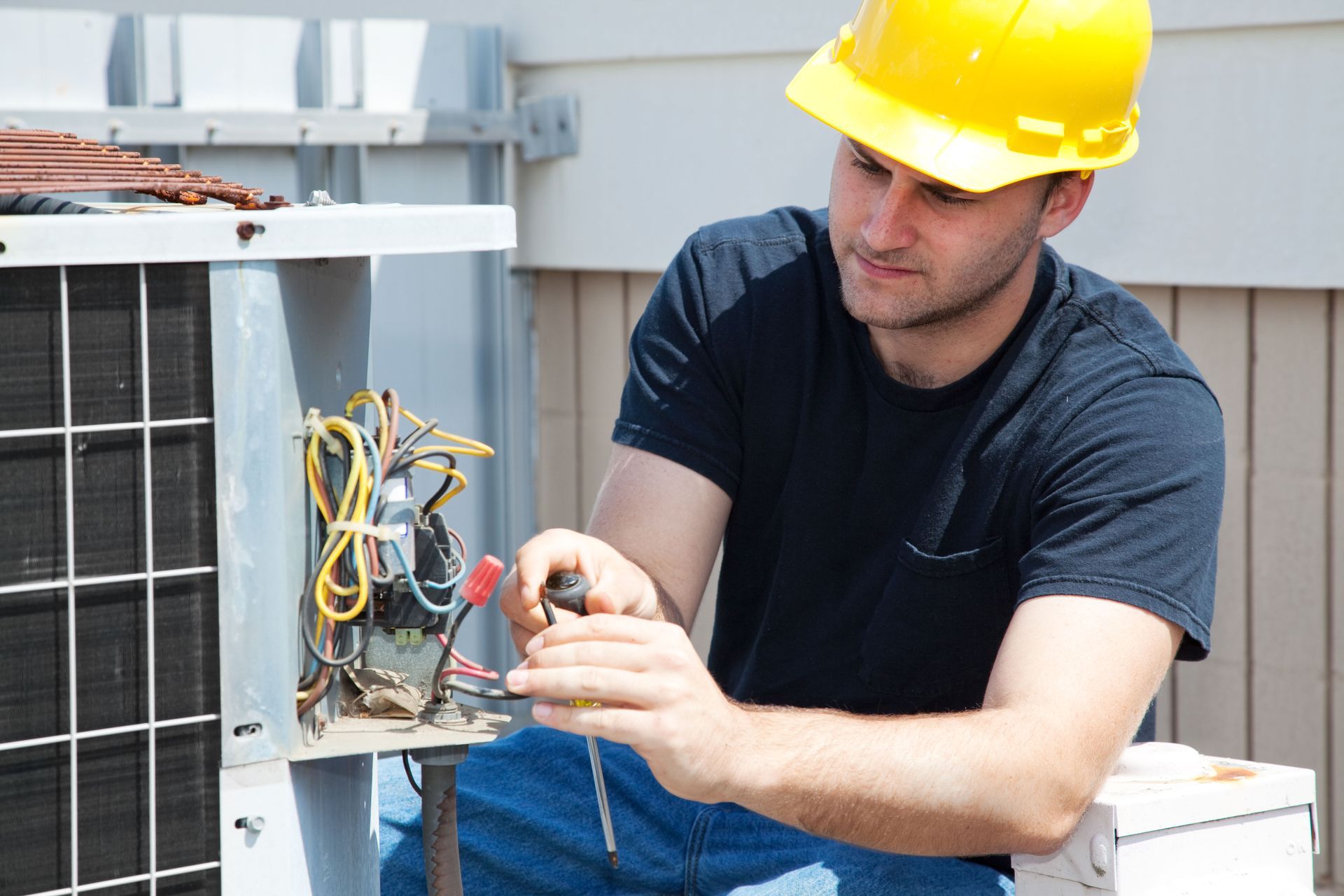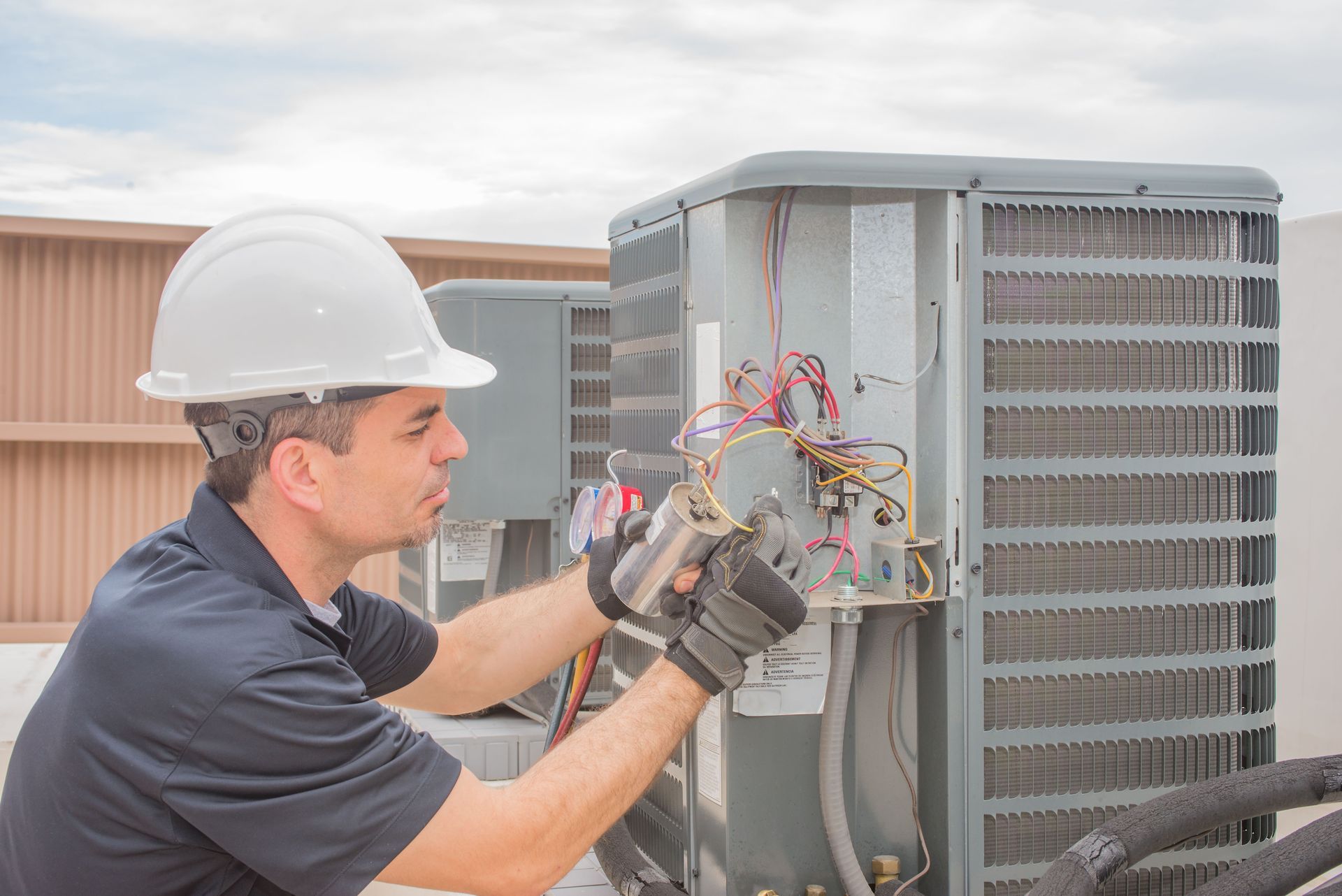Avoid the Heat: 5 Signs Your Home Needs Immediate AC Repair
In the sweltering summer months, a fully functional air conditioning system is essential for comfort and well-being. However, like any other appliance, an AC unit can encounter issues that may lead to its inefficiency or even a complete breakdown. It's crucial to recognize these warning signs early to avoid discomfort and costly repairs. This article will guide you through five critical signs that indicate your home needs immediate AC repair. Recognizing these signs not only ensures comfort but also enhances the efficiency of your AC system, preventing further damage.
1. Unusual Noises Coming from the Unit
Strange sounds emanating from your air conditioning unit should never be ignored, as they often indicate underlying issues. Common noises you may hear include a persistent buzzing, which can signal loose parts or an electrical problem. A hissing sound may point to a refrigerant leak, which requires immediate attention due to its potential environmental impact. Clicking noises are another cause for concern, often suggesting issues with electrical components. Each type of noise correlates with specific mechanical failures that, if left unresolved, may lead to a complete system breakdown.
The causes of these unusual noises can vary widely, involving different components of the AC unit. Buzzing sounds might arise from loose belts or failing fan motors, while hissing could be due to high-pressure leaks in the refrigerant line. Clicking might be symptomatic of malfunctioning capacitors or electrical connections that need tightening or replacement. These mechanical failures not only disrupt the unit's performance but also contribute to increased energy consumption. Repairing these issues promptly not only resolves the noise but also enhances the overall efficiency and longevity of the AC system.
Certain noise patterns, especially when they increase in frequency or volume, may indicate imminent failure of the unit. If the noises transition from intermittent to constant, this could be a red flag indicating more severe internal problems. Such symptoms demand immediate professional inspection to prevent a total shutdown. Regular maintenance checks can prevent these issues from escalating, ensuring that noise problems are identified and rectified early. By proactively addressing these issues, homeowners can save on costly repairs and maintain a quieter, more efficient home environment.
2. Inconsistent Airflow Throughout the Home
Airflow dynamics play a crucial role in the efficiency of an air conditioning system. A well-functioning AC unit ensures even distribution of cool air throughout the home for optimal comfort. When airflow is inconsistent, it can result in uncomfortable temperature variations across different rooms. This inconsistency typically points to underlying issues that, if ignored, might lead to larger problems, including system overloads or failures. Ensuring consistent airflow not only enhances comfort but also maintains the system's energy efficiency, reducing operational costs.
Weak or uneven airflow is often indicated by noticeable hot or cold spots in different areas of the home. A drastic reduction in airflow from vents can also signify airflow issues that need attention. Residents might observe that some rooms receive no cool air at all while others are adequately cooled. Such inconsistencies may stem from blocked vents, malfunctioning components, or issues within the ductwork. By identifying these signs early, homeowners can pursue timely repairs to improve circulation and balance throughout their living space.
Several factors can contribute to poor airflow within an AC system. Clogged filters are a primary suspect; if filters become too obstructed with dust and debris, they limit air passage and strain the system. Faulty or failing fans are another common issue that can impede the adequate distribution of air. Ductwork obstructions or leaks can further exacerbate these problems by allowing conditioned air to escape. Analyzing and addressing these causes not only restores proper airflow but also optimizes the system's performance, extending its lifespan.
3. Short Cycling or Frequent Turn-On and Off
Short cycling refers to the frequent turning on and off of an air conditioning unit before completing its cooling cycle. This behavior prevents the unit from effectively cooling down the home and leads to increased energy consumption. Not only does short cycling compromise comfort, but it also strains the system, reducing its lifespan. Short cycling may stem from various causes, ranging from thermostat mismanagement to incorrect unit sizing. Knowing these underlying factors helps homeowners take corrective measures to ensure consistent and efficient cooling.
Several factors can trigger short cycling in an air conditioning unit. Miscalibrated or improperly placed thermostats often send inaccurate signals, leading to short and frequent cycles. Units that are too large for the space they are meant to cool may result in rapid temperature adjustments, causing short cycling. Other triggers include malfunctions of the compressor or low refrigerant levels, which can further disrupt the system's normal operations. Recognizing these triggers is critical to implementing effective repairs and restoring optimal performance.
Ignoring short cycling can have severe implications for both your AC system and household finances. Continuous cycling increases the wear and tear on the unit, leading to premature component failure and costly repairs. It also results in significant energy waste, with homeowners experiencing unexplained spikes in their electricity bills. The compound effect of wear and high energy usage can ultimately lead to the need for a complete AC replacement, an expense far greater than routine maintenance. Addressing these issues early prevents costly consequences, preserving both the system and the homeowner's budget.
4. Unpleasant Odors Emanating from the Vents
When unpleasant odors emerge from your AC's vents, they often signify deeper issues that demand attention. Musty smells typically suggest mold growth or mildew buildup within the system's components or ductwork. A burning odor can indicate overheating issues, possibly due to dust or electrical problems within the unit that could pose safety risks. Chemical-like smells, such as the scent of a sweet, acrid odor, might suggest refrigerant leaks, a serious issue requiring immediate repair. Identifying these odors promptly prevents additional complications and ensures the well-being of household members.
Several factors contribute to odorous airflow in an air conditioning system. Mold growth occurs when moisture accumulates within the system, creating a breeding ground for bacteria and fungi in areas like drip pans or evaporator coils. Electrical problems can emit burning smells, particularly if wiring is frayed or components overheat from excessive use. In certain situations, incorrect or failing installation can lead to refrigerant leaks, resulting in chemical smells that compromise air quality. Addressing these causes promptly maintains indoor comfort and forestalls more severe system failures.
5. Unexpected Increase in Energy Bills
Understanding and monitoring energy use trends is crucial for identifying efficiency issues with your air conditioning system. Regular energy audits allow homeowners to compare current consumption with historical data, pinpointing increases that may signal underlying problems. Home monitoring systems and smart meters provide real-time insights into daily energy use, facilitating early detection of inefficiencies. According to Benchmark International, the global HVAC systems industry is forecast to grow at a compound annual growth rate of 6.4% from 2024 to 2031, indicating a greater demand for energy-efficient solutions. Keeping track of trends empowers homeowners to take corrective actions and reduce unnecessary expenses.
Various mechanical failures can contribute to unexpected spikes in energy bills within air conditioning systems. Leaks or blockages in the refrigerant line force the unit to consume more energy, reducing cooling efficiency. Failing components, such as compressors or fans, compromise system performance, prompting increased electricity usage. Insufficient insulation, especially in older homes, affects the system's ability to maintain consistent temperatures, leading to constant cycling and higher costs. Ethnographically addressing these mechanical issues decreases energy waste and supports sustainable utility usage.
Recognizing the five signs that your home's AC system needs immediate repair can prevent discomfort and save money. Proactive measures and timely professional intervention are the keys to ensuring that your AC system operates smoothly and efficiently year-round. Recognizing these signs not only guarantees a more comfortable living space but also aids in preventing extensive future repairs. As the global HVAC industry continues to evolve, staying informed and prepared positions households for ongoing comfort and sustainability. For reliable AC repair services, contact us today at Expert Climate Control.






Share On: